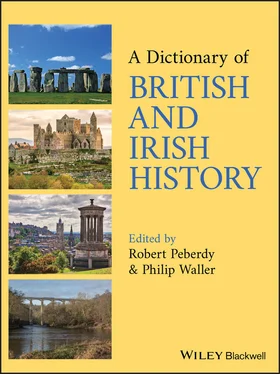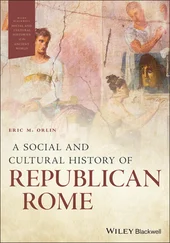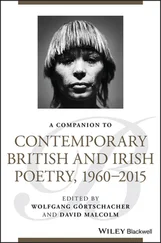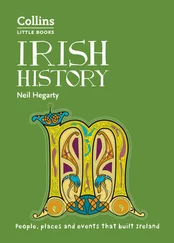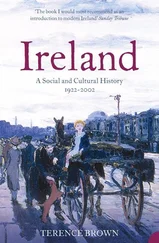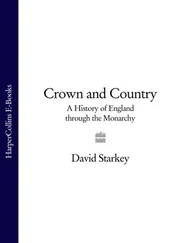Britain’s dependent empire was expanded considerably during the era of so‐called NEW IMPERIALISM in the later 19th century. In WEST AFRICA, Britain’s coastal presence was extended inland ( see GAMBIA, SIERRA LEONE, GOLD COAST, NIGERIA); in N Africa, EGYPT and SUDAN were brought under British rule; and three protectorates were established in EAST AFRICA. Britain also acquired influence in S America and China ( see INFORMAL EMPIRE). After WORLD WAR I (1914–18), territories were acquired as MANDATES (in Africa and Middle East).
The British Empire was most extensive in the 1920s. Thereafter it contracted; the Statute of WESTMINSTER (1931) recognized self‐governing DOMINIONS as effectively independent, and many territories became self‐governing between 1947 and 1964 ( see DECOLONIZATION). In 2015 the UK retained 14 overseas territories ( see DEPENDENT TERRITORY). See also CROWN COLONY; SLAVE TRADE, ENGLISH AND BRITISH INVOLVEMENT.
BRITISH EMPIRE, GOVERNMENT OF
English colonies in the Americas (from 1607) were minimally supervised by the king and PRIVY COUNCIL until CHARLES II increased control through the lords of trade and plantations (from 1675), who oversaw the NAVIGATION ACTS and heard appeals. They were replaced by the Board of TRADE (1696–1782), though the SECRETARY OF STATE (southern) was also involved from the 1720s. After disputes began with NORTH AMERICAN COLONIES (1760s), a separate colonial secretaryship was created (1768–82). Colonial affairs were then handled by the home secretary (1782–1801), secretary for war and the colonies (1801–54) and colonial secretary (1854–1966). PROTECTORATES created in the late 19th century were briefly administered by the foreign secretary, then transferred to the colonial secretary.
From the 17th century until 1858 administration of British INDIA remained with the EAST INDIA COMPANY, though Parliament imposed State supervision (Regulating Act 1773, providing Crown appointment of governors and presidency councils; India Act 1784, creating a Board of Control). There was a secretary of state for India 1858–1947 (with BURMA from 1937, to 1948).
From 1925 there was also a secretary for DOMINION affairs (renamed COMMONWEALTH relations, 1947), a position often held by the colonial secretary. The post absorbed the colonial secretaryship in 1966, but was taken over by the foreign secretary in 1968 (his department became the Foreign and Commonwealth Office).
Within colonies, administration varied, notably between ‘direct’ and ‘indirect’ rule. Colonies under direct rule usually had a governor and council, and often an assembly. Later administration in India operated through the INDIAN CIVIL SERVICE, backed by a police force and Indian Army. Indirect rule, or governance through native authorities with British ‘guidance’, was the preferred method in Indian princely kingdoms, MALAYA (from 19th century), and most of tropical Africa (e.g., NIGERIA). Other types of government included RESPONSIBLE GOVERNMENT. See also NORTH AMERICAN COLONIES, GOVERNMENTS OF; MANDATE OR MANDATED TERRITORY; INFORMAL EMPIRE.
BRITISH GUIANA
A former British colony on the N coast of S America. The area known as Guiana (larger than the later colony) was visited by Walter RALEGH (1595, 1617–18), who sought the fabled wealthy city of Eldorado, and by other Englishmen. During the 17th century the Dutch established sugar PLANTATIONS worked by slaves.
Great Britain occupied Guiana in 1796 to exclude French influence and retained the W part (1814) which it unified as the CROWN COLONY of British Guiana in 1831. After SLAVERY was abolished in 1834, sugar production declined. Following instability in the 1950s, British Guiana was granted independence as Guyana under the British Crown in 1966, and became a republic in 1970. Approx. population in 1921, 301,000; in 1965, 645,000.
BRITISH HONDURASA former British possession in C America. Settled by English buccaneers and log cutters from 1638, the territory was long denied formal recognition for fear of Spanish hostility. Great Britain appointed a superintendent in 1786 and declared a CROWN COLONY in 1862. British Honduras became self‐governing in 1964, and was renamed Belize in 1973, but territorial claims by neighbouring Guatemala delayed independence. It was granted in 1981 with the British monarch as head of State. Approx. population in 1921, 45,000; in 1980, 145,000. BRITISH–IRISH RELATIONS FROM 1922see IRISH–BRITISH RELATIONS FROM 1922 BRITISH ISLES
The archipelago NW of Continental Europe, named from its largest island, BRITAIN. It comprises about 4400 islands of at least 0.5 acre (0.2 ha), of which about 200 are inhabited. The second‐largest island is IRELAND. Other significant, though much smaller, islands or subsidiary archipelagos are Isles of Scilly, Aran Islands, ANGLESEY, Isle of MAN, WESTERN ISLES (or Hebrides), ORKNEY ISLANDS, SHETLAND ISLANDS, Isle of Wight. The CHANNEL ISLANDS are often associated with the British Isles though they lie close to Continental Europe (France).
The islands contain five sovereign jurisdictions: UNITED KINGDOM of Great Britain and Northern Ireland (UK); Isle of Man (British Crown ‘dependency’ outside UK); bailiwicks of Guernsey and Jersey (two British Crown ‘dependencies’ outside UK, the Channel Islands); Republic of Ireland. Est. total popn in 2015: 69,909,000.
The islands have never been a single political entity, but they belonged to a single monarch as kingdoms or lordships from 1603 (succession of JAMES VI of SCOTLAND as king of ENGLAND, with the Channel Islands and Man, and as king of Ireland) to 1949 (change of status by SOUTHERN IRELAND to a republic).
BRITISH LEGIONThe main voluntary social and welfare organization for veterans of the British armed forces, founded in 1921 (after WORLD WAR I) by merger of four organizations. Earl HAIG was its first president; ‘Royal’ was prefixed in 1971. The Legion provides care with funds raised by an annual ‘poppy appeal’. In the early 21st century it had branches in the UK, Republic of Ireland and other countries, and over 300,000 members. BRITISH NATIONAL PARTYsee FASCISM, GREAT BRITAIN BRITISH NORTH BORNEO COMPANYA commercial company founded in 1881 by Alfred Dent, and granted a British royal charter, which in 1882 took over jurisdiction in North Borneo (part of Borneo). The sultans of Sulu and Brunei had earlier granted jurisdiction to Baron von Overbeck, Austro‐Hungarian consul at HONG KONG, and Overbeck had conveyed his rights to Dent (1880). The charter obliged the company to administer justice with regard to native law, and to preserve native religion and customs. A British PROTECTORATE was established in 1888. The company administered North Borneo until it became a CROWN COLONY in 1946 (except during Japanese occupation, 1942–5). BRITISH SCIENCE ASSOCIATIONsee BRITISH ASSOCIATION FOR THE ADVANCEMENT OF SCIENCE BRITISH SOMALILANDA former British territory on the Gulf of Aden in E Africa (now part of Somalia). British forces occupied the coast in 1884 to secure the sea route to ADEN and supplies. After treaties had been negotiated with various sultans, a PROTECTORATE was declared in 1888. Tribal raiding, led by Mahommed bin Abdullah Hassan (the so‐called ‘Mad Mullah’), hindered administration inland until 1920. The territory was united with Italian Somaliland in 1960 to form the independent Somali Republic. Approx. population in 1921, 345,000; in 1959, 500,000. See also EAST AFRICA, BRITISH INVOLVEMENT. BRITISH SOUTH AFRICA COMPANYA commercial company incorporated in 1888 and led by Cecil RHODES (d. 1902). In 1889 it was authorized by royal charter to administer and exploit a large area of SE Africa. It created and ran the territories known as SOUTHERN RHODESIA and NORTHERN RHODESIA, retaining sovereign rights until 1924 (expiry of charter). In 1965 the company merged its business with other companies and continued as a non‐trading entity. BRITONS IN ANGLO‐SAXON KINGDOMSFrom the 5th century men of Germanic origin established kingdoms in southern Britain which contained a majority of British (Brittonic‐speaking) inhabitants. British inhabitants are acknowledged in the laws of King ÆTHELBERT of KENT (d. 616). Their social structure included nobles, freemen and unfree peasants, but they were reckoned at lower status than corresponding Germanic inhabitants (see WERGELD). A similar situation appears in the laws of INE of WESSEX (d. c.726). The majority Britons eventually assimilated to the culture of the Germanic minority (by 9th century). See also GERMANIC IMMIGRATION, SOUTHERN BRITAIN; CEMETERIES, EARLY GERMANIC. BRITTEN, BENJAMIN(b. 22 Nov. 1913 at Lowestoft, Suffolk, England; d. 4 Dec. 1976 at Aldeburgh, Suffolk, aged 73). An accomplished composer as a teenager, Britten studied at the Royal College of Music (1930–3) and developed a modernist idiom without abandoning tonality. He quickly built a reputation with both instrumental and vocal works (e.g., song‐cycle Our Hunting Fathers, 1936). A conscientious objector to war, Britten lived in the USA 1939–42, during WORLD WAR II. After his return to Great Britain, he composed Peter Grimes (performed 1945), the first of several operas to join the international repertoire, and founded the Aldeburgh Festival (1948). Later works include the War Requiem (1961). Created Lord Britten (1976), he was the first composer to become a peer. BRIXTON AND TOXTETH RIOTS
Читать дальше
